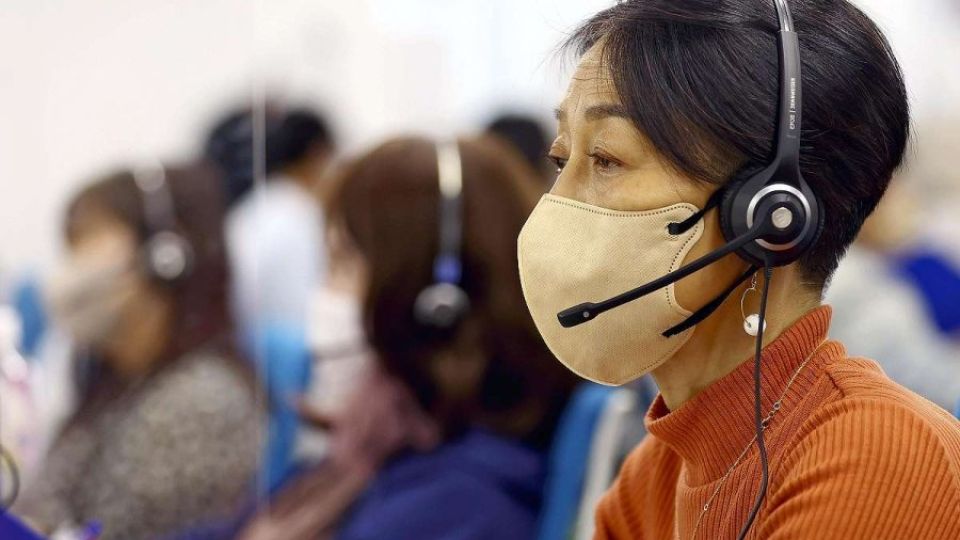May 10, 2023
TOKYO – The country on Monday passed a milestone in the COVID-19 pandemic when the disease was reclassified as a Category V disease under a relevant law, allowing a wider range of medical institutions to treat affected patients. Whether to receive a medical exam has also been left to the discretion of individuals, causing confusion and leading many people in Tokyo to call a municipal consultation center for advice.
In a building in the capital on Monday, operators were busy handling a flood of phone calls from people saying, “I tested positive with a self-test kit but don’t know where to go for a consultation,” “I’m recuperating, and my fever has gone up. I’m worried,” or “My family member tested positive and I’m feeling sick too.”
The Tokyo metropolitan government set up a 24-hour telephone consultation center in conjunction with the downgrade of COVID-19. At the center, nurses answer questions that require medical knowledge. On Monday, staff fielded about 300 calls from Tokyoites during the three hours between 9 a.m. and noon.
Tokyo had been running three consultation centers, including one for fever patients and one for patients recuperating at home. All three centers officially closed Sunday, but their functions have been integrated into the new center. “If there are a lot of people who call an ambulance due to concern from a fever or other symptoms, it could lead to a shortage of medical services,” a local government official said, explaining the municipality’s reasoning for maintaining a center.
With the downgrade of the disease, the authorities have stopped counting cases of novel coronavirus infection. According to The Yomiuri Shimbun’s tally, a total of 33,830,420 people have been infected, and 74,725 people have died in the roughly three years since January 2020, when the first infected person was confirmed in Japan.
The Health, Welfare and Labor Ministry’s advisory body has expressed its view that infection cases will soon rise due to people moving about during the Golden Week holidays. There are also fears of a COVID surge again toward summer, and some experts are concerned about a “ninth wave,” which could surpass the eighth wave of last winter.
The central government continues to urge the public to ventilate spaces regularly, wash hands, disinfect surfaces and have test kits and fever-reducing painkillers ready to go for when they feel ill. Although there are no longer coronavirus-related restrictions on activities, the government still recommends that COVID-19 patients refrain from going out for “five days from the day after the onset of illness.” If a family member is infected, those who live with that person are asked to wear a mask and avoid crowds until the seventh day from the day after symptom onset.
Back to the office

The Yomiuri Shimbun
Employees at Toyo Tire Corp. hold a meeting in an office in Shinagawa Ward, Tokyo, on Monday.
Toyo Tire Corp., a major tire manufacturer based in Hyogo Prefecture, has switched its office policy from “work from home” — the rule since April 2020 — to “In general, employees should come to the office.”
On Monday, some 60% of the roughly 90 employees at its office in Shinagawa Ward, Tokyo, came to the office and attending meetings without masks in spaces with no partitions. The company has also stopped asking for voluntary restraints on business trips and dinners.
Face-to-face business meetings are expected to be organized more frequently, and a 43-year-old sales representative said, “It will be easier to negotiate when I’m able to see the expressions of our business partners.”
A Toyo Tire spokesperson said that going forward the company “will seek more flexible work styles that allow employees to be more productive, while also allowing them to work from home.”

